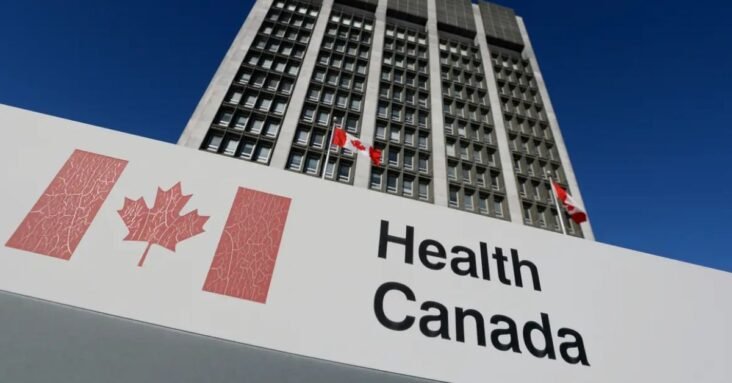
Back in October, Health Canada confirmed that a Simian Virus 40 (SV40) DNA sequence is present in Pfizer-BioNTech COVID-19 vaccines. Since then, however, the agency has declined to answer numerous additional questions about the sequence and other potential issues related to the shots.
Health Canada confirmed in October the presence of the SV40 promoter-enhancer in the COVID-19 vaccines based on the plasmid DNA sequence “submitted by Pfizer against the published SV40 enhancer sequence.”
The regulator told The Epoch Times that it expects sponsors to identify “any biologically functional DNA sequences within a plasmid (such as an SV40 enhancer) at the time of submission.” But Health Canada was only able to identify the SV40 sequence after its presence in the shots was raised publicly earlier this year by scientists Kevin McKernan and Dr. Phillip J. Buckhaults.
Following Health Canada’s confirmation, the European Medical Agency and the United States Food and Drug Administration (FDA) also acknowledged that the SV40 promoter-enhancer is present in the Pfizer-BioNTech COVID-19 injection.
The two scientists have warned the DNA is likely not being properly cleared by the body when injected, given its encapsulation in lipid nanoparticles, and that it could potentially alter the human genome if it transfected into cells. Mr. McKernan and other scientists also expressed concern that the SV40 sequence—typically used as an enhancer to drive gene transcription during the vaccine manufacturing process—could inadvertently cause cancer.
Health Canada later said that concerns about the SV40 promoter-enhancer sequence being linked to increased cancer risk are “unfounded,” adding there was no evidence to support such a claim. “The fragment is inactive, has no functional role, and was measured to be consistently below the limit required by Health Canada and other international regulators,” the agency told The Epoch Times.
But when asked by this publication in November to provide its risk assessment to support such a statement—as well as examples of studies performed to assess the risk of cancer in vaccines and the SV40 sequence—Health Canada declined.
Health Canada also did not respond to questions about what evidence it has that the SV40 fragment is inactive, whether the SV40 has no “functional role” in the plasmid or if transfected into humans, why it is present if it has no role, and what the specific limit is for the SV40 promoter-enhancer and what measurements were obtained and techniques used to acquire them.
“In the case of the Pfizer-BioNTech COVID-19 vaccine, the full DNA sequence of the Pfizer plasmid was provided at the time of initial filing, though it did not specifically identify the SV40 promoter enhancer sequence. The SV40 promoter enhancer sequence was found to be a residual DNA fragment in Pfizer-BioNTech COVID-19 vaccine,” Health Canada said in response to the questions.
Concerns About Plasmid DNA
When Mr. McKernan and Dr. Buckhaults discovered the presence of plasmid DNA in the COVID-19 mRNA injections—which is used in the manufacturing of mRNA vaccines and is supposed to be removed to a level below a threshold set by health regulatory agencies before the final product is released for distribution—Health Canada did not express concern.
The department told The Epoch Times in August that it was “aware of residual plasmid DNA as a process-related impurity during review and prior to the authorization of the mRNA COVID-19 vaccines,” but that the presence of residual plasmid DNA “does not change the safety assessment of these vaccines.”
He also had raised concerns that Pfizer-BioNTech used a different process to produce the vaccines for the clinical trials, from which the safety and efficacy data is drawn, as opposed to mass production. He said the “Process 1” used by Pfizer involved a plasmid-free manufacturing method, while production was scaled up using plasmids for “Process 2,” to be deployed on a mass scale.
Health Canada previously said “Process 1” involves using PCR-amplified, linearized plasmid as a template, yielding clinical materials that are “not entirely plasmid-free,” while “Process 2” uses only linearized plasmid DNA without PCR amplification.
In its follow-up email to Health Canada in November, The Epoch Times asked what the purpose of using the plasmids in Process 1 was, whether the map for that plasmid was provided by Pfizer, whether it contained the SV40 promoter sequence, if it provided a fully annotated plasmid map, and how much amplification was performed from the plasmid.
Health Canada did not answer most of the questions, responding that Pfizer’s submission provided “information that process 1 was used for clinical trials and process 2 was used for commercial scale-ups.”
Open Reading Frame Not Identified
The Epoch Times also asked Health Canada about an Open Reading Frame (ORF) that Mr. McKernan found to be present in the plasmid when running it through the computer program SnapGene. Open Reading Frames are spans of DNA sequence that have the potential to be translated into a protein.
Mr. McKernan said Pfizer-BioNTech also failed to identify the ORF for the regulatory bodies, despite World Health Organization and FDA regulations that state all ORFs need to be identified.
Mr. McKernan said while he could not fully identify the “mystery” substance, the ORF’s closest resemblance was to a protein involved in silk, and it also had associations with collagen and fibroin. “So that’s very concerning, because there’s all of these reports of weird clots going on and bizarre stuff getting pulled out of people’s arteries,” Mr. McKernan told The Epoch Times.
“And here we have a gene that’s not supposed to be there that codes for something that no one really knows what it does.”
Health Canada said it had “not received any reports of any atypical, hardened, tentacle-like blood clots” found in the bodies of deceased vaccinated people.
When The Epoch Times asked Health Canada to comment on the ORF present in the plasmid, why it was present, and if it had been identified by Pfizer-BioNTech, the agency did not provide an answer.
Health Canada said it would not provide further information when asked to give specific and detailed responses to questions.
Pfizer has not responded to multiple previous inquiries.



